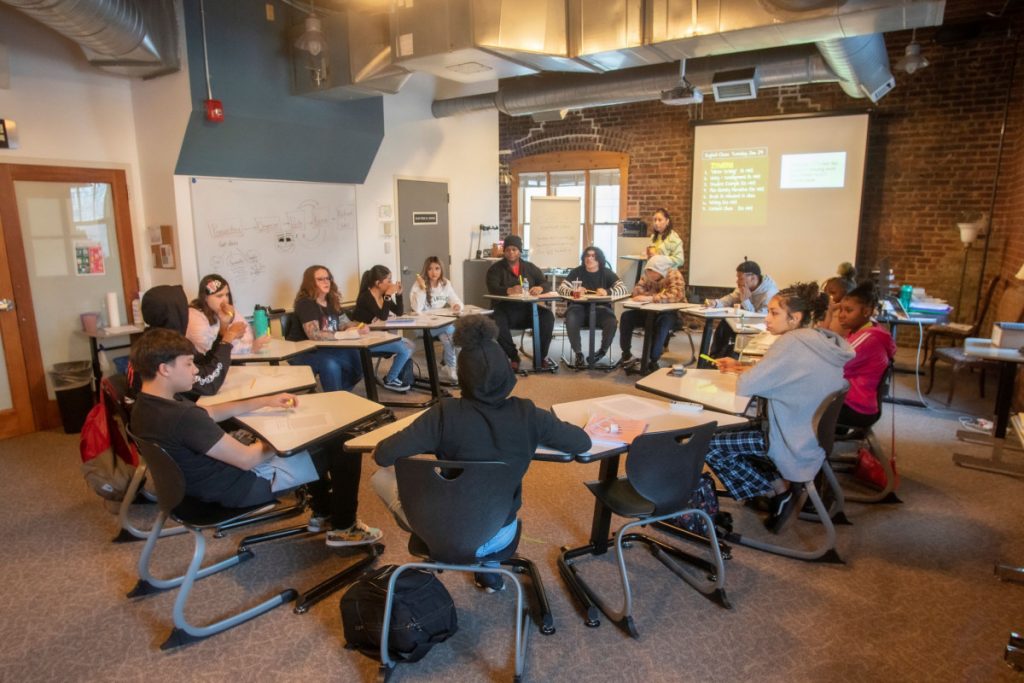Public opinion has turned definitively against the Denver Public Schools board and administration in recent weeks, and it’s hard to see how this will change between now and November’s election, when three seats are up.
Three important recent developments demonstrate how the board and its one employee, Superintendent Alex Marrero, are back on their heels, events outstripping their ability to respond effectively.
The first of these is the welcome news that seven local news organizations joined forces to sue the district for an alleged violation of the state’s open meetings law, demanding that DPS release a recording of the March 23 meeting, during which school safety issues were discussed behind closed doors.
An East High School student had shot and wounded two deans inside the school the day before, and the district was scrambling to craft a response. Some of the issues discussed could conceivably have fallen under permissible uses of executive session.
But it strains credulity that the entire five hours needed to be kept from public view. Let’s hope the courts side with the plaintiffs, and then we all shall see what the recording reveals.
Since three new board members were elected in November of 2021, DPS and its board have become markedly less transparent. It started with a rapid-fire decision to extend Marrero’s contract during one of the new board’s first meetings, in December 2021, with no time allowed for public input.
It has continued through an opaque school closure debate and decision, an attempt to muzzle the District Accountability Committee, a recent, aborted attempt to dramatically increase board member pay, and now the school safety issue.
If you expand the definition of transparency slightly, the board members’ efforts to exclude standardized test scores from information easily accessible to parents shows that they’d prefer that parents blindly trust their neighborhood schools rather than make informed decisions.
For all of these reasons, the recent lawsuit is an important move that should shed some light on the board and district’s recent practices, and, one can hope, lead to a change in behavior.
The second significant development was the release of “version 1.0” of the district’s safety plan, which the board ordered Marrero to produce in the wake of the east shootings.
While Marrero stressed that the plan is a work in progress and that this is an early version, it was immediately panned both by people who felt the draft went too far, and by those who felt it did not go far enough.
On the “too far” side was board Vice President Auon’tai Anderson, who wrote online that he could not support the draft in its current form because it allows for the possibility of metal detectors and the permanent presence of School Resource Officers in schools. He said the plan could have “dire consequences” for students of color in particular.
“If the plan remains unchanged, I will be compelled to vote against its ratification and actively lobby against it,” Anderson wrote.
Those who felt the draft plan was too lax complained that it does not call for changes to the patdown policy that led to the East shootings, and still would allow students charged with violent crimes, including attempted murder, to return to school.
“Like putting gasoline next to a fire and asking for a safety plan,” East parent Alexander Ooms tweeted. “I guess it can be “safer” but inherently never going to be safe.”
Finally, Colorado Public Radio’s estimable education reporter Jenny Brundin broke a story May 1 that city officials are unhappy at the school board’s decision to delay redistricting until after November’s election. Board members want time to study the implications of redistricting, specifically its potential to split historically Black communities into different districts.
But the five board districts are unbalanced in terms of population following the 2020 census, requiring that boundaries be redrawn. Brundin wrote:
Balancing the population in each board district ensures that each board member represents approximately the same amount of people.
“This ensures every individual’s voice can be heard and represented in compliance with the Voting Rights Act,” according to the district’s website.
“My understanding is that the current district map is in violation of this requirement by a significant margin,” (City Clerk and Recorder Paul)Lopez wrote in the letter.
What lesson should the board district draw from the crossfire in which they’re caught? Once lost, credibility is hard to regain. When people no longer trust you, then every move you make will be scrutinized and criticized, and your motives will be called into question.
That might seem unfair to board members and district leaders. But it’s the reality they’re living in, and they have brought it upon themselves.




